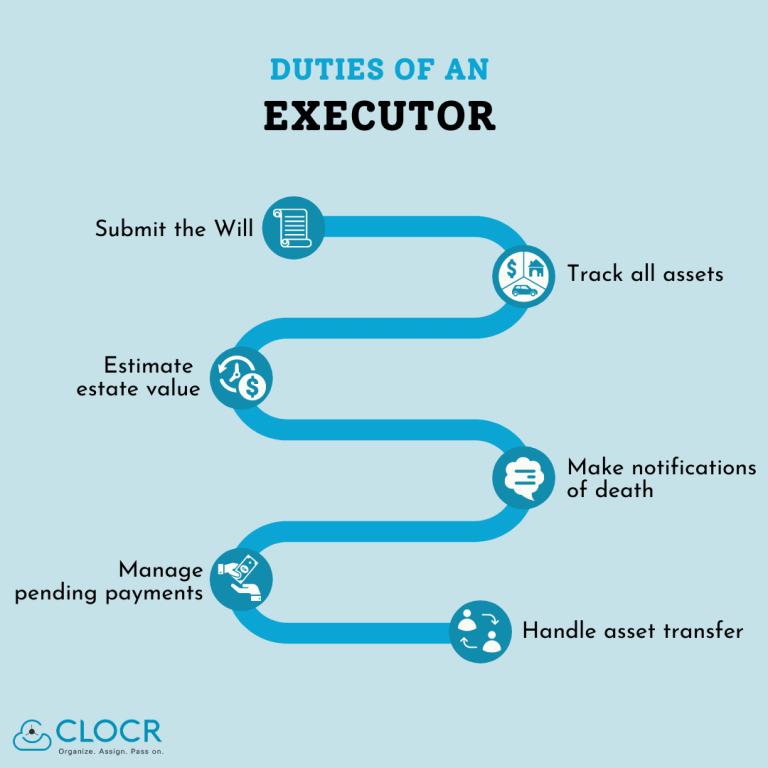Estate Planning has always played a crucial role in how we plan our lives and help our loved ones deal with emergencies. This is especially true today with the pandemic. Now, it is not sufficient to create an Estate Plan—you need an Estate Plan you know will be executed perfectly.
So, how can you make sure your Estate Plan works?
The simplest way to do this, is by appointing an Executor. Your Estate Plan is most effective when it is in the hands of the right Executor. Very often, with an Executor you did not appoint, your Estate might not be settled exactly the way you imagined it to be. However, by carefully appointing one, you might be very close to it.
What you’ll learn in this article:
What is an Executor?
An Executor of an Estate is a person who executes the last wishes in your Last Will and Testament. They are usually a lawyer or a financial advisor. However, they can also be family members or friends, as long as they are not your Beneficiaries. Additionally, they need to be over 18 years of age and have no felony convictions.
An Executor can be appointed by you, the testator (person who writes a Will), or by a court in the absence of a Will or any mention of it in the Will. In the latter situation, a judge appoints an Executor as per the State laws. Usually, this is a close family member.
The judge, then, authorizes them to act on behalf of the Estate as per your wishes. This happens with the help of legal documents like a letter testamentary.
Role of an Executor
The Executor’s role is quintessential to the Estate settlement process after the testator’s death. The sooner an Executor starts their work, the quicker the Estate is settled and Estate probate is handled.
Their primary role is to ensure your Estate is handled according to your last wishes. This includes treating the Beneficiaries of your Estate impartially and keeping them informed at all times.
However, the duties of an Executor go beyond this:
- Submit the Will: The Executor has to submit the Last Will and Testament at a probate court for review and authorization. This would be followed by a hearing that determines the validity of the Will. In most states, this is also where the Will can be contested.
- Ensure all assets are accounted for: They need to make sure all assets in the Will are accounted for. They also need to ensure that any assets not mentioned in the Will are handled. This can be done by tracking different financial accounts, going through the testator’s papers, talking to family members, etc. The Executor may also be required to report an accounting of the deceased assets to the probate court.
- Notify the death: They have to notify all parties about the death of the testator. This includes Beneficiaries, Social Security Administration, services and subscriptions, creditors, etc.
- Estimate Estate Value: They also needs to estimate the value of the Estate after the death of the testator. This can be done using the date of death value or an alternative valuation date provided by IRC.
- Manage all due payments: The Executor has to ensure that all debts of the deceased have been cleared, including taxes. Conversely, they also have to make sure all debts owed to the deceased are collected and managed as per the testator’s last wishes.
- Handle asset transfer: They need to ensure the right assets are transferred to the right people. These assets can range from financial holdings to art pieces.

Rights of an Executor
While it is true that Executors have more responsibilities than rights in the Estate execution process, knowing their rights can help them be more aware while carrying out their duties. Some of these rights are:
- Accept or reject the role: The person appointed as an Executor has the right to approve or reject their position. They can step down from their position after the process starts as well.
- Consult with professionals: They are allowed to consult with estate attorneys, financial advisors, certified public accountants, and other professionals if the Executor believes they would be of assistance in the process.
- Request for reimbursement: It is plausible the Executor would have expenses in the Estate execution process that need to be paid out of their personal account. This could include copy and postage expenses, filing fees, etc. Thankfully, every state has a provision for them to be reimbursed for these expenses.
- Compensated for services: They also have the right to be compensated for the time and effort they put into the Estate execution process. The compensation rate, however, varies from state to state. While in some states Executors receive a certain percentage of the Estate, others pay on an hourly basis.
How to Choose an Executor?
Appointing an Executor is a crucial part of creating your Estate Plan. You can ensure the effectiveness of your Estate Plan by choosing the right person for the role. Here are some things to keep in mind while choosing one:
- Choose someone available: An Executor is required to dedicate plenty of time to submit documents, oversee asset transfers and talk to beneficiaries. This means they have to be available every time anything related to your Estate needs to be taken care of.
- Choose someone your beneficiaries are comfortable with: They would need to regularly talk to your Beneficiaries and family members to inform them of your death, your assets and last wishes, and all ongoing procedures. Choosing someone your Beneficiaries are comfortable with can help both parties settle your Estate together better.
- Choose someone financially and legally aware: Executing an Estate Plan requires Executors to fill out multiple forms, conduct a proper valuation of the Estate and ensure accounting of all assets. Someone with financial and legal knowledge would be better equipped to make informed decisions.
- Choose someone who understands your Estate Plan: It is as important for an Executor to understand your Estate Plan as it is for them to be knowledgeable. A person who understands you and your Estate Plan will have the advantage of making decisions that align with your wishes.
- Choose someone comfortable with technology: Most of your assets can be accessed through online portals like banking and payment apps. These accounts need to be closed. Moreover, you will need them to protect your Digital Assets. Choosing a person comfortable navigating the internet and using digital gadgets can help you overcome this challenge.
Alternatively, you can create a Digital Estate Plan and appoint a Digital Executor to manage your Digital Assets after your death.
